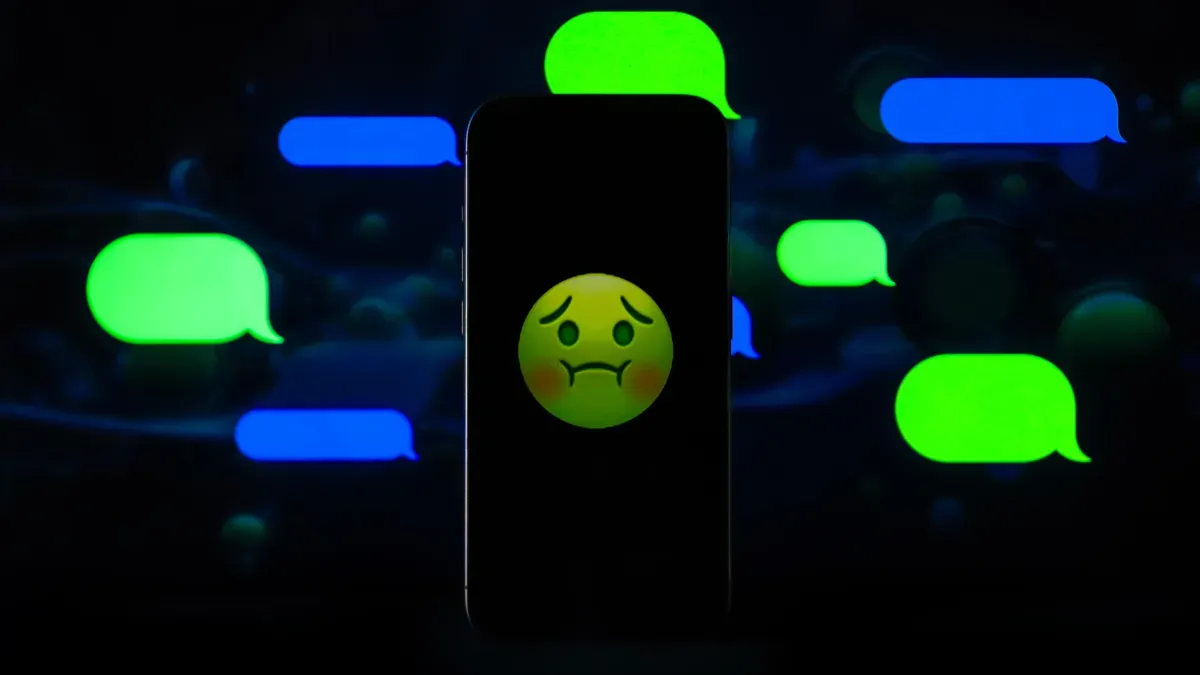Beeper CEO Draws a Crowd at the FCC
The dispute has been described as the Blue Bubble (iPhone) vs. Green Bubble (Android) debate.
Ted Hearn

WASHINGTON, April 5, 2024 – The cross-platform messaging pioneer Beeper is taking on Apple at the Federal Communications Commission, and it isn’t having trouble drawing a crowd.
At issue is Apple’s move to block features of the Beeper Mini app. That Android app integrates iMessage and SMS so that iPhone and Android smartphone users can share encrypted text messages and other rich features that are normally the exclusive preserve of iPhone users on iMessage.

The dispute has been described as the Blue Bubble (iPhone) vs. Green Bubble (Android) debate.
Beeper CEO Eric Migicovsky – joined by top Public Knowledge lawyers John Bergmayer and Harold Feld – has begun making the rounds at the agency, including a personal meeting with Republican FCC Commissioner Brendan Carr on Wednesday and an aide to Republican FCC Commissioner Nathan Simington.
He’s also met with aides to FCC Democrats Geoffrey Starks and FCC Commissioner Anna Gomez, showing his issue has likely struck a nerve at the agency.
Another tangible sign that the FCC is examining Apple’s conduct is that Migicovsky on Tuesday staged a briefing for 15 senior FCC staff officials, a large audience of influential decisionmakers that included Wireless Telecommunications Bureau Chief Joel Taubenblatt and the leaders of the Disability Rights Office and the Office of Economics and Analytics.
Beeper Mini is trying to close the Blue Bubble vs. Green Bubble divide
In the meeting, Migicovsky explained the divide that that Beeper Mini was trying to close, according to Beeper’s filing today with the FCC. Beeper is based in Palo Alto, Calif, about 20 miles from Apple’s Cupertino headquarters.
“When Apple users communicate with other Apple users, they have access to features such as end-to-end encryption, high-resolution images, delivery receipts, the ability to seamlessly participate in group texts, and more,” he explained. “These texts appear in a ‘blue bubble’ which highlights these improved functionalities. But when Apple users attempt to text Android users (or when Android users text Apple users), Apple restricts these texts to SMS — which lacks these enhanced features.”
By blocking the Beeper Mini app’s interoperable messaging solution, Migicovsky filing said, Apple “has prevented third-party apps like WhatsApp and Beeper from integrating with SMS as it does with its bundled app. Further, it has been slow to adopt industry standards like [Rich Communications Services] that would improve cross-platform messaging, and has taken affirmative steps to block Beeper’s attempt to interoperate with iMessage.”

Apple last December told the N.Y. Times it acted because the Beeper Mini app created security and privacy risks.
On March 21, 2024, the Department of Justice filed an antitrust suit against Apple, claiming the company has taken a number of unlawful measures to protect the iPhone’s dominance of the smartphone sector.
Without mentioning the Beeper Mini by name, DOJ’s complaint noted that in an effort to stall innovation and competition, “Apple blocked a third-party developer from fixing the broken cross-platform messaging experience in Apple Messages and providing end-to-end encryption for messages between Apple Messages and Android users. By rejecting solutions that would allow for cross-platform encryption, Apple continues to make iPhone users less secure than they could otherwise be.”
Migicovsky wants the FCC to bring SMS under provisions in Title II of the Communications Act that mandate interconnection and interoperability and would bar Apple’s blocking of the Beeper Mini.
“The Title II toolbox is available to be used for pro-competition, public interest obligations, and is relevant to the current situation with SMS and iMessage,” Migicovsky’s filing said.
Another possibility is to find Apple in violation of the 21st Century Communications and Video Accessibility Act, a 2010 disability law that would require a covered entity like Apple to “ensure accessibility and usability of advanced communications services and equipment for people with disabilities,” Migicovsky said.
In February, Carr called for an investigation to determine whether Apple has violated the disability law.
Article by Ted Hearn, the Editor of Policyband, a new website dedicated to comprehensive coverage of the broadband communications market.









